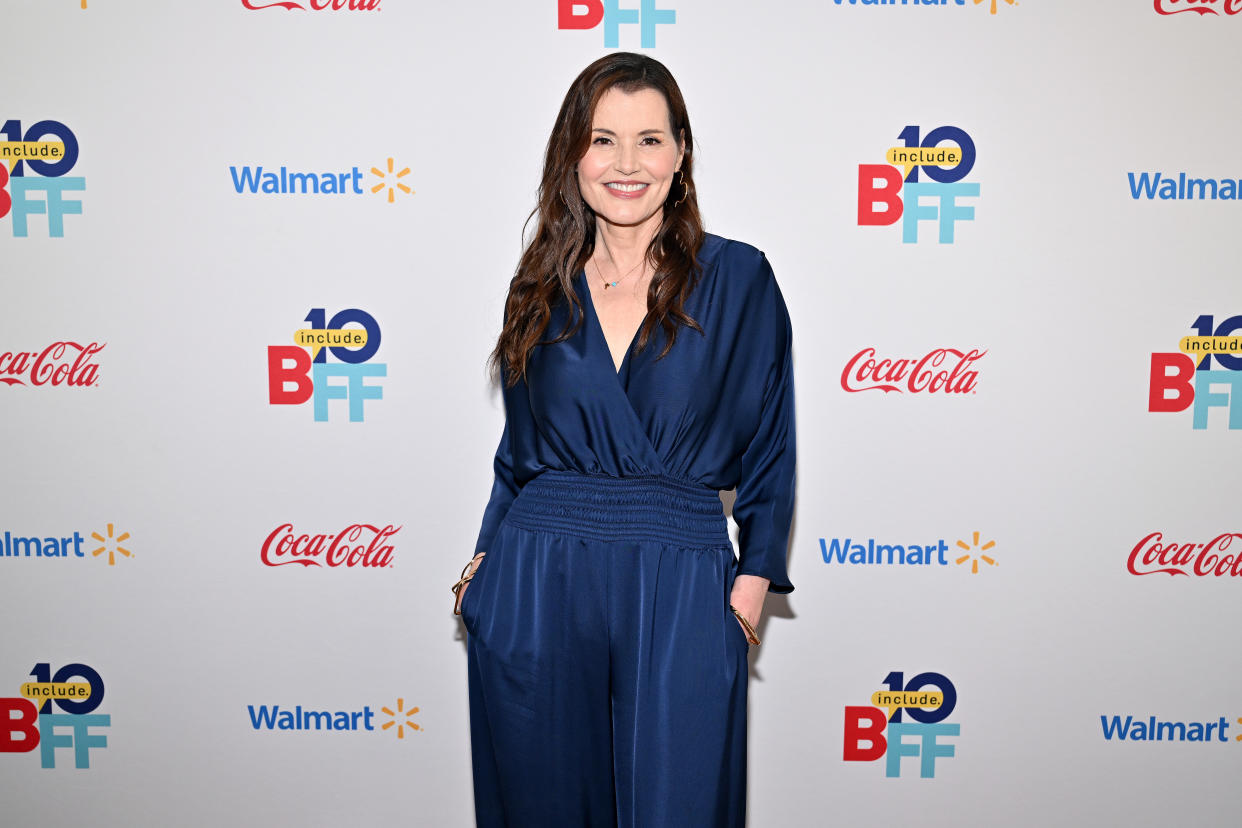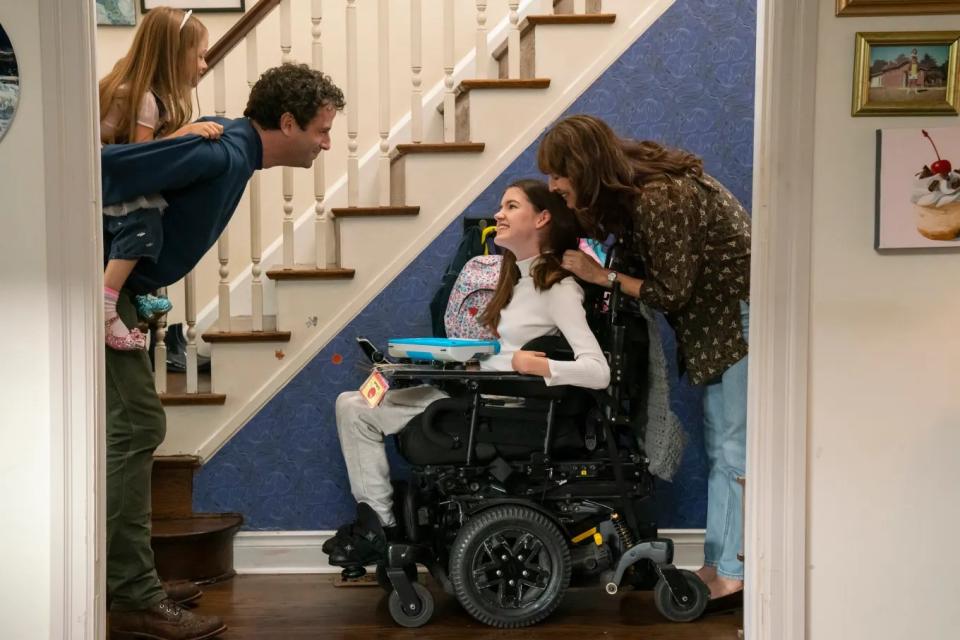Geena Davis Is Giving Hollywood the Tools to Make Onscreen Diversity Easy — Now It Has to Use Them

Geena Davis has a lot to celebrate this year. Her Geena Davis Institute, which aims to bolster the onscreen representation of a variety of under-served identity groups, is turning 20. And the similarly diversity-minded Bentonville Film Festival, which she founded and still chairs, is turning 10. Could she have ever dreamed of these markers when she started?
“Yes, yes. Profoundly so. Yes, yes,” Davis told IndieWire during an interview in Bentonville earlier this week (and more to come from that in the coming days). “I knew that I wanted this to really take off and last and grow and grow, which it is.”
More from IndieWire
It’s not just the institute and BFF that are growing either; it’s the hard-fought recognition of the ideals the Oscar-winning actress has long championed. She’s not slowing down, and she’s not at all deterred.
“The whole goal is to show people that diversity behind the camera and onscreen enriches films, and also they make more money,” she said. “It’s been shown. It wasn’t our research, but research has shown that the more diverse a film is, the more box office, which really makes so much sense.”
The most recent UCLA Hollywood Diversity Report reiterated that point, which has been statically proven by a number of similar studies over the past few years: female directors or people of color hire more diverse casts, and movies with more diverse casts outperform the least diverse films at the box office and in streaming ratings.
When IndieWire spoke with Davis in 2015 as she was gearing up for the second edition of BFF, while unpacking the requirements for BFF inclusion, she hit on something greater about the need and desire for diversity in Hollywood: “You have to have a certain number of female stars or minority stars, same with director, producer, writer, a balanced cast, a balanced crew, minority producer. All kinds of things will qualify you to get into the festival. The more we have the better, obviously. It’s doable, it’s commercial.”
“It’s doable, it’s commercial.” How does she feel about that statement these days?
“Well, it really does resonate,” Davis said. “We’ve seen it in major motion pictures that have come out, these incredible blockbusters starring women or people of color or directed by women or people of color. Diversity is the way to go. It just makes sense. My philosophy has always been, ‘Let’s reflect the real population, both in front of and behind the camera.’ It’s not controversial, or it should not be seen as controversial in any way, to simply mirror reality.”
As busy as Davis is with the festival and the institute, she promises, she’s not giving up the acting thing. Ideally, they can all continue to go hand-in-hand.
“I’m never going to give up my day job. That’s my heart, but it is a huge part of my life, all of this,” Davis said. “This is our 10th anniversary and the same year we’re having the 20th anniversary of my institute. I can’t believe either one, that that much time has gone by. We’re really so passionate and so excited about the progress that’s being made. We have become embedded in every studio and treated as very valuable contributors to what’s being made.”
One studio Davis’ institute has long worked closely with is NBCUniversal. In 2020, NBCUni’s Global Talent Development and Inclusion (GTDI) started a year-long initiative to utilize the institute’s Spellcheck for Bias program. That partnership is continuing, and seems likely to appeal to more studio heads as it proves its worth.
“One studio runs all of their scripts through what we call Spellcheck for Bias,” she said. “This is a means of looking at scripts before the [films are] made. Certainly, hopefully, before you cast it, maybe even before you green-light something. It’s a combination of machine learning and AI and expert coding. What we can do is take anything that’s in print and look at it and give a breakdown of what it contains, because we all have unconscious biases and cannot see what is actually true many times. This helps you overcome that.”
The program doesn’t change anything, it just provides a concise breakdown of six different categories of under-represented people: gender, race/ethnicity, body type, age, disability, and LGBTQIA identity. While Davis has seen major strides in some of these areas since founding the institute two decades ago — like gender parity in family-rated films and children’s programming, which was Davis’ initial aim — there are other groups that are practically “invisible” on the screen.
“It’s really, really bad,” Davis said. “And doesn’t in any way reflect the actual population. Something like 25 precent of the American population has some kind of disability, 40 percent of Americans have a larger body type, and yet [that representation] is in the single digits on screen.”
So how can Spellcheck for Bias help? “What it will do is tell you how many lines every character has, all the way from the lead character to someone who’s got one line. And what their gender is, what their race or ethnicity, if it’s specified, who is disabled, who has a large body type, who is older,” Davis said. “A lot of times those things aren’t specified in the script. Certainly, I’m going to guess that almost no script says, ‘Susie Farmer, who is white,’ so we just assume everybody’s white because it doesn’t say that.”

The Spellcheck for Bias program, Davis said, provides suggestions for how a script might be made more diverse with some small tweaks to character descriptions. Perhaps a character doesn’t necessarily need to be a certain gender or a certain race, based on the content of the script’s story. Maybe someone can be gender non-conforming.
“Ideally, a writer would know how to do this or be inspired to do it themselves to make sure that it’s very different. This is a tool that you can use to really, really address diversity in a very significant way before something is cast,” she said. “We’re talking about onscreen representation. So it’ll say, ‘These many characters are people of color. These are the characters who could become people of color. These many opportunities to cast disabled people. These characters aren’t doing physical things that would limit them to able-bodied. There’s no reason these characters couldn’t have a different body type or be older,’ and all that.”
Asked about the current explosion of AI-centric chatter around Hollywood, much of it understandably not well-received by those who worry burgeoning technology will hurt creatives (and creativity), Davis emphasized, “It can be very helpful. It can be whatever. There probably are a lot of things that could be used for ill or good.”
But with Spellcheck for Bias, Davis said, the onus is put back on the creatives. They can do with the information what they wish. “People find that incredibly helpful,” she said. “It’s just like, ‘Wow, now we can use our own creativity to use this information,’ but suddenly it becomes eminently doable.”
It’s doable. It’s commercial.
Best of IndieWire
The Best Father and Son Films: 'The Tree of Life,' 'The Lion King,' 'Nowhere Special,' and More
The 52 Best Sexy Movies of the 21st Century, from 'Spring Breakers' to 'X'
The 14 Best Thrillers Streaming on Netflix in June, from 'Fair Play' to 'Emily the Criminal'
Sign up for Indiewire's Newsletter. For the latest news, follow us on Facebook, Twitter, and Instagram.

 Yahoo News
Yahoo News 
